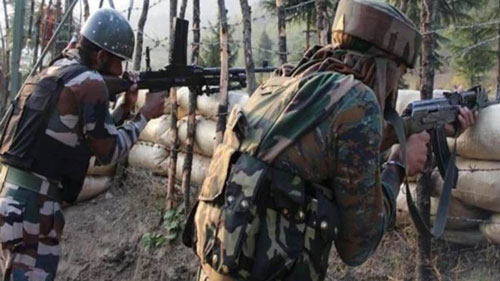Srinagar
In Indian illegally occupied Jammu and Kashmir, a series of attacks on Indian occupational forces by mujahideen post ceasefire understanding reached by Pakistan and India in February has logically proven that Kashmir resistance movement is indigenous and homegrown.
Reacting to the attacks on the Indian troops by mujahideen in Srinagar and Shopian over the past few days, political analysts and social media users in their statements and tweets said that the involvement of local Kashmiri youth in these attacks have utterly belied India’s claim that Kashmir freedom struggle is foreign sponsored.
They also referred to the IIOJK police chief, Dilbagh Singh who while talking to reporters on the sidelines of inauguration of a cricket tournament in Srinagar on March 20 had admitted that there has been zero infiltration on the Line of Control (LoC) in both Kashmir and Jammu regions.
It is worth mentioning here that Dilbagh Singh had said, “I would love to see zero infiltration throughout 2021.”
Talha Ahmad, who closely watches developments in occupied Jammu and Kashmir, in a latest tweet said, “Post ceasefire agreement between Pakistan and India, freedom fighters carried out four attacks on Indian forces.
All were [carried out by] locals Kashmiris; this totally negates the narrative of ‘terrorist launch pads [reference to Indian propaganda that freedom movement is foreign sponsored]’ this means the political resistance is genuine and armed struggle is homegrown.”
A social media user who uses Kashmir Intel as Twitter ID said, “ … new emerging militant groups …..act like indigenous, which means now you can’t even blame Pakistan.”—KMS










